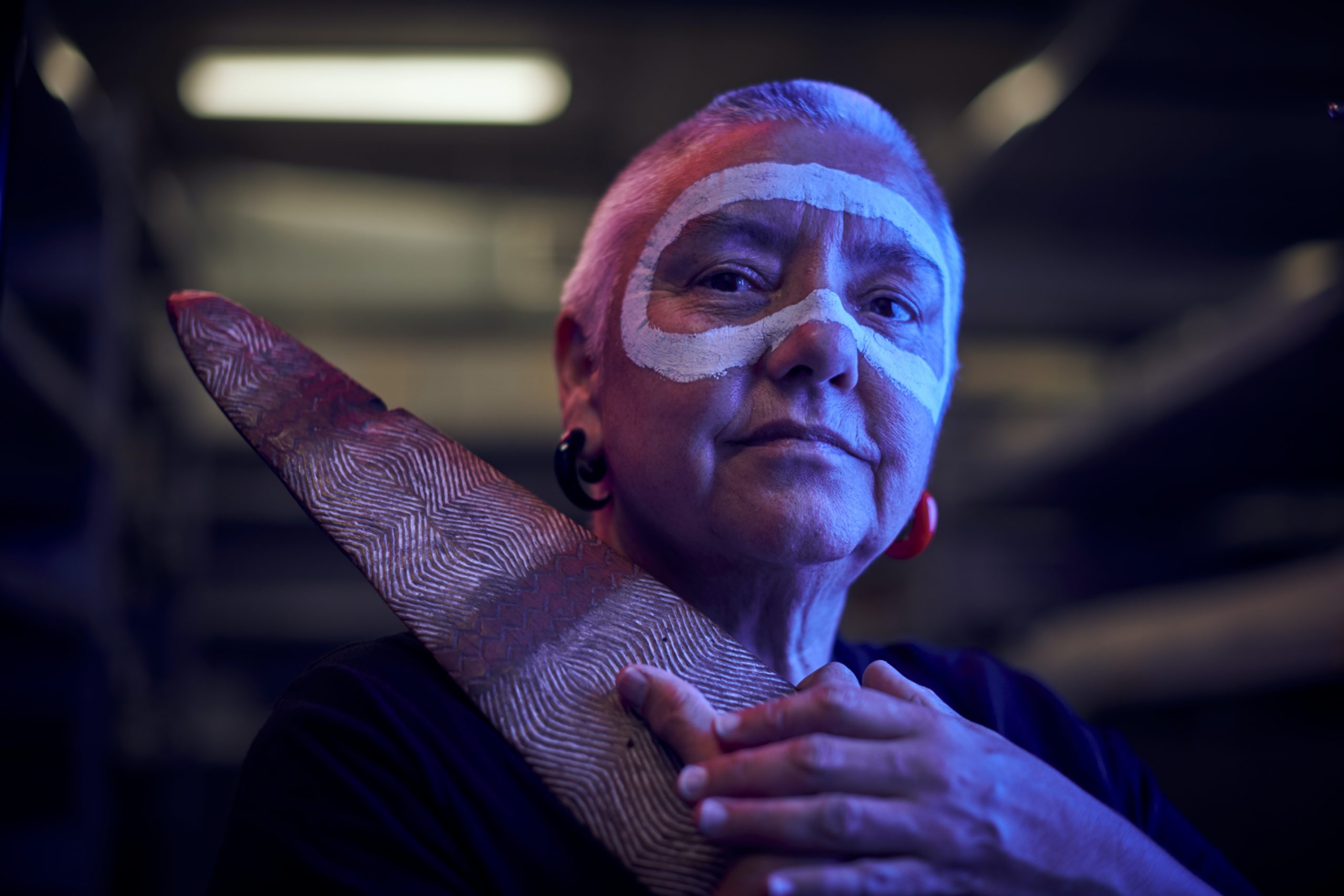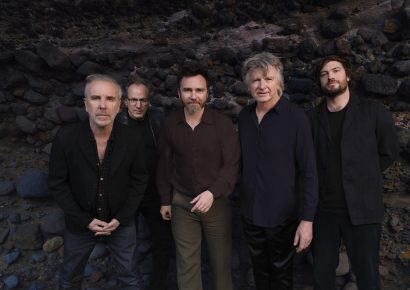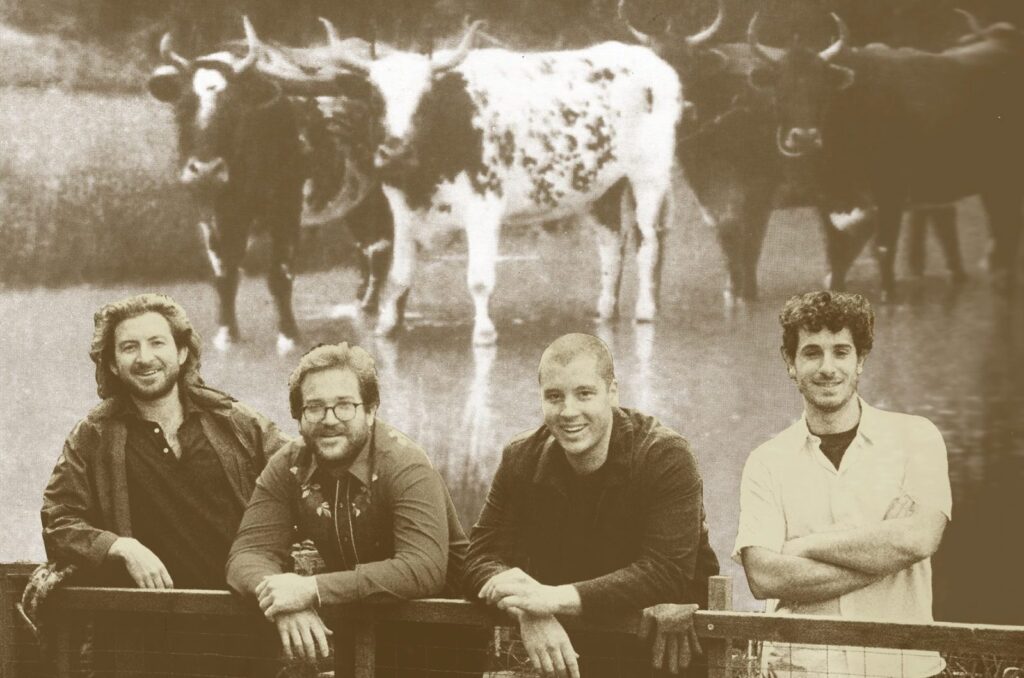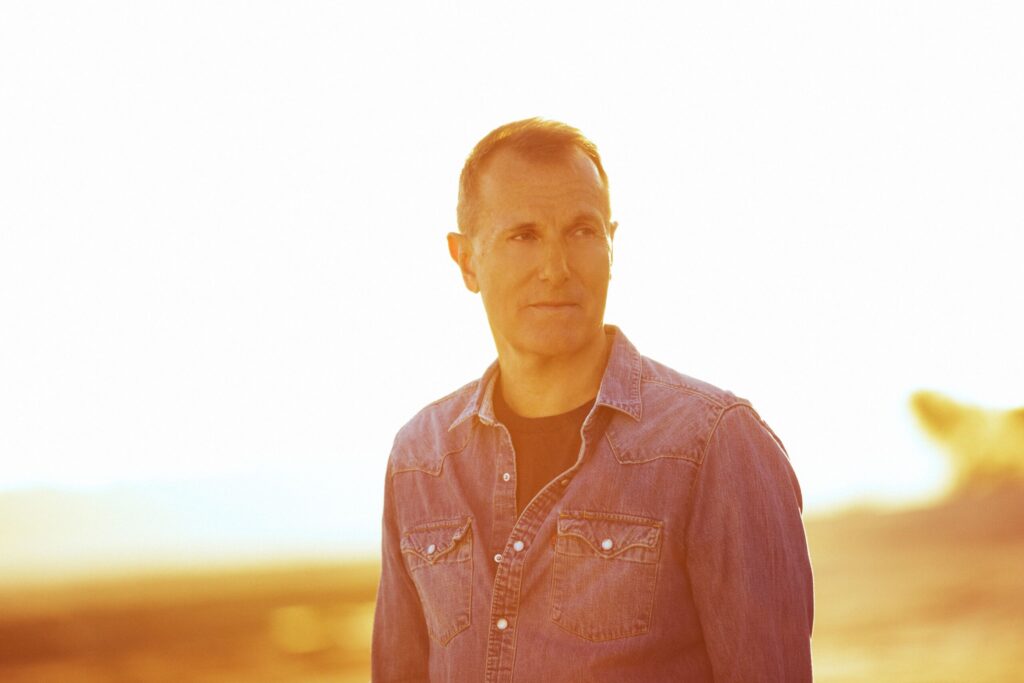Yorta Yorta Dja Dja Wurrung artist and academic Dr Lou Bennett AM has devoted her life to music and language and she's sharing her explorations at RISING.
Appointed as a member (AM) of the Order of Australia in 2019 for her significant service to the performing arts, music and the Indigenous community, Bennett has been instrumental in recovering multiple Indigenous languages through the power of music, making her one of the most renowned performers at RISING in 2022.
“A part of my whole purpose is to teach language through song,” says Bennett of her upcoming RISING show. “I sing about 15 different languages because of all the different compositions and different communities that I’ve had relationships with. English has its limitations, so being able to learn languages as much as I can while I’m on this earth – that’s my purpose.”
Stay up to date with what’s happening in and around Melbourne here.
Alongside her own languages of Yorta Yorta and Dja Dja Wurrung, Bennett speaks and sings in many other Aboriginal and Torres Strait Islander languages as well as Welsh, Spanish, Italian and French. Bennett’s PhD examined the importance of retrieving, reclaiming and regenerating Indigenous languages through songs, stories and performances. Her latest research project explores the use of song composition in rematriating Aboriginal languages to their respective communities. Bennett has revitalised the importance of embracing First Nations values and practices.
Inspiration to retrieve and regenerate Indigenous languages came from her grandmother. “When I was a kid, my nan lived with us and I remember every night she would speak beautiful, comforting language phrases to my sister and I,” says Bennett, “but she never used to speak a lot of it. I used to get so sad and so upset that we’d go to school, but we weren’t learning Yorta Yorta. It not only saddened me, but it drove me to ask why. Why aren’t we learning how to learn my language on my country? From a very early age, I’ve been driven by wanting to understand why that was so.”
Bennett’s connection to country is profound and insightful. She speaks to her ancestors before every performance. “It’s so important for myself as a Yorta Yorta/Dja Dja Warrung singer or woman of song to be able to connect with spirit,” says Bennett.
“It reminds me every time I get on stage: remember who you are, remember where you come from, don’t get too big for your own boots, don’t boast – it’s about coming to something with humility and integrity and truth. When I’m having a conversation with my old people, I ask for guidance for presence of their knowledge. It reminds me every day to stay grounded, be respectful to the earth, and be respectful to every living being on this earth.”
Composed in multiple First Peoples languages by Bennett and making its debut at RISING, ‘wurukur djuanduk balag – Ancestors Are Calling’ is a profoundly moving work that responds to the cultural belongings of First Peoples held in the Melbourne Museum collections. Bennett invited a broad range of collaborators, including Uncle Herb Patten (Ganai-Kurnai, Yorta Yorta and Wiradjuri), Aunty Joy Wandin Murphy (Wurundjeri), Allara (Yorta Yorta), Deline Briscoe and Silo String Quartet. The languages that the poignant composition will be sung in are Dja Dja Wurrung, Yorta Yorta, Woiwurrung, and Gugu-Yalanji.
Kimberley Moulton – artistic associate of RISING and curator at the Melbourne Museum – came up with the beautiful idea for ‘Moving Objects’, a collection of new work by First Nations artists of all different disciplines – music, sound, spoken word, visual, dance – and Bennett was quick to accept Moulton’s invitation to be involved. “I feel very grateful to have been able to do that – to go and sit with objects or what the western world considers an object, an artefact, whether it be a stone, axe, a spearhead, a woven basket, a grinding stone, shields and digging sticks – and to respond to those particular pieces,” Bennett reflects. “For me it was a really beautiful moment to sit with the ancestors and to listen and respond with how I felt from holding these pieces, so it became quite a beautiful journey for me and for those I wanted to invite to be a part of that. This is the musical outcome of those visits with the old people.”
View this post on Instagram
“The western world takes many things for granted,” says Bennett. “If we don’t take care of what is living and what is here, then nothing comes back in return. If we continually take, it depletes, and this is what we’re seeing – the evidence of that happening now with climate change and it’s because we’re consuming too much. When we start to honour and worship the dollar over life, then we’re in a very bad position. We know that we do need an economy to survive in this world, but we also need each other; we also need clean water, fresh air and good, healthy nutrients from the country – if we’re not looking after the country, then we can’t get that and that’s the basis. It stems from such a big circle of ideas and practices and knowledges that I know my old people have passed down to me and my other ancestors and community members: Look after the land like your family because it is our family, and in return she will provide for us.”
Across more than 30 years, Bennett has inspired countless local and international audiences through the magnificent harmonies of fearless and acclaimed music trio Tiddas, as co-founder of the Aboriginal and Torres Strait Islander performing arts company Black Arm Band, and through her various roles as singer-songwriter, musician, artistic and musical director, composer, actor, soundscape designer and academic.
“I never stick to one thing,” says Bennett. “I go where my heart takes me. That tells me that I’m listening to my ancestors. I try my hardest to listen to my instinct and say I want to spend more time with that person, or I want to spend more time understanding what that means or how that will sound with my music – trusting my instincts and trusting my ancestors to guide me to places. I’ve tried different music, and now I’m enjoying the relationships that I’m setting up now with classical musicians. I have, in a sense, more freedom. I can explore storytelling in a different way, and I can also utilise my ancient knowledges of First Nations people, Yorta Yorta and Dja Dja Wurrung people, in my collaborations. I can come to those collaborations as myself without feeling that I need to either code-switch or jump to someone else’s tune. That’s a really beautiful transition and growth that I’ve been very blessed to have and experience.
“That’s how I like to live my life: never push the river; always go with the flow,” Bennett muses. “We all need music. And when I say all of us, I mean every living being, not just human beings, but the birds every morning sing to us, and every evening when the sun sets, they sing their evening song. The insects, the cicadas, the crickets – they all have their own song, their melody, their language, their story. It’s embedded in the country; it’s a part of who we are, and we need it for our wellbeing.”
Wurukur Djuanduk Balag – Ancestors Are Calling by Dr Lou Bennett AM (Yorta Yorta Dja Dja Wurrung) is on at the Melbourne Museum on June 3 at 7:30pm as part of RISING.







